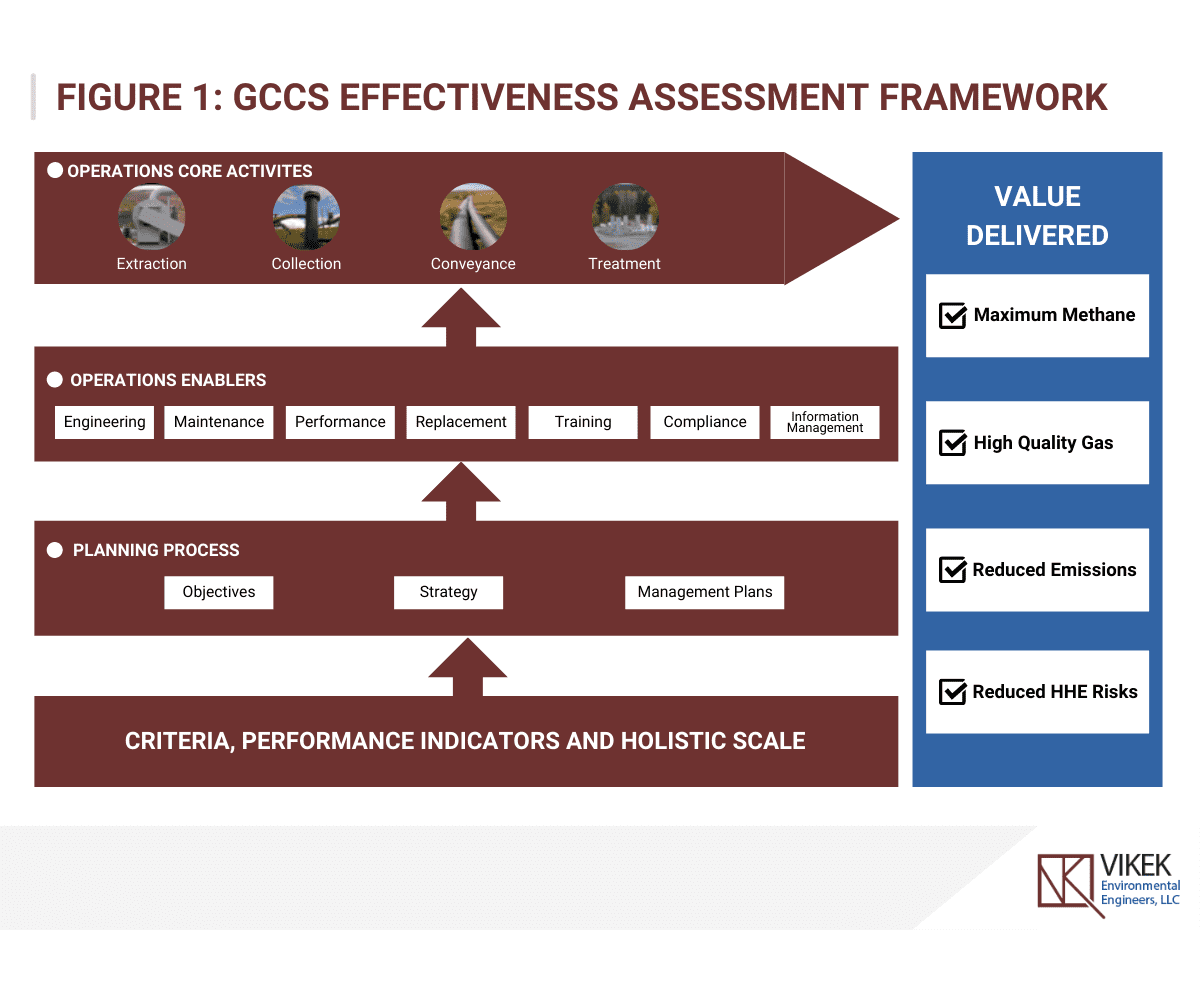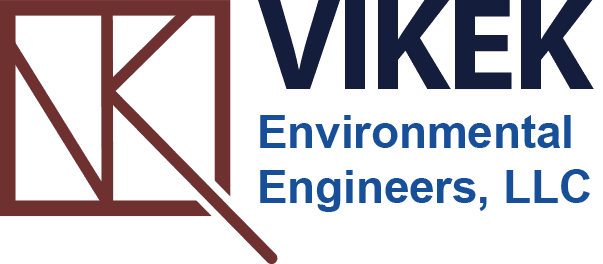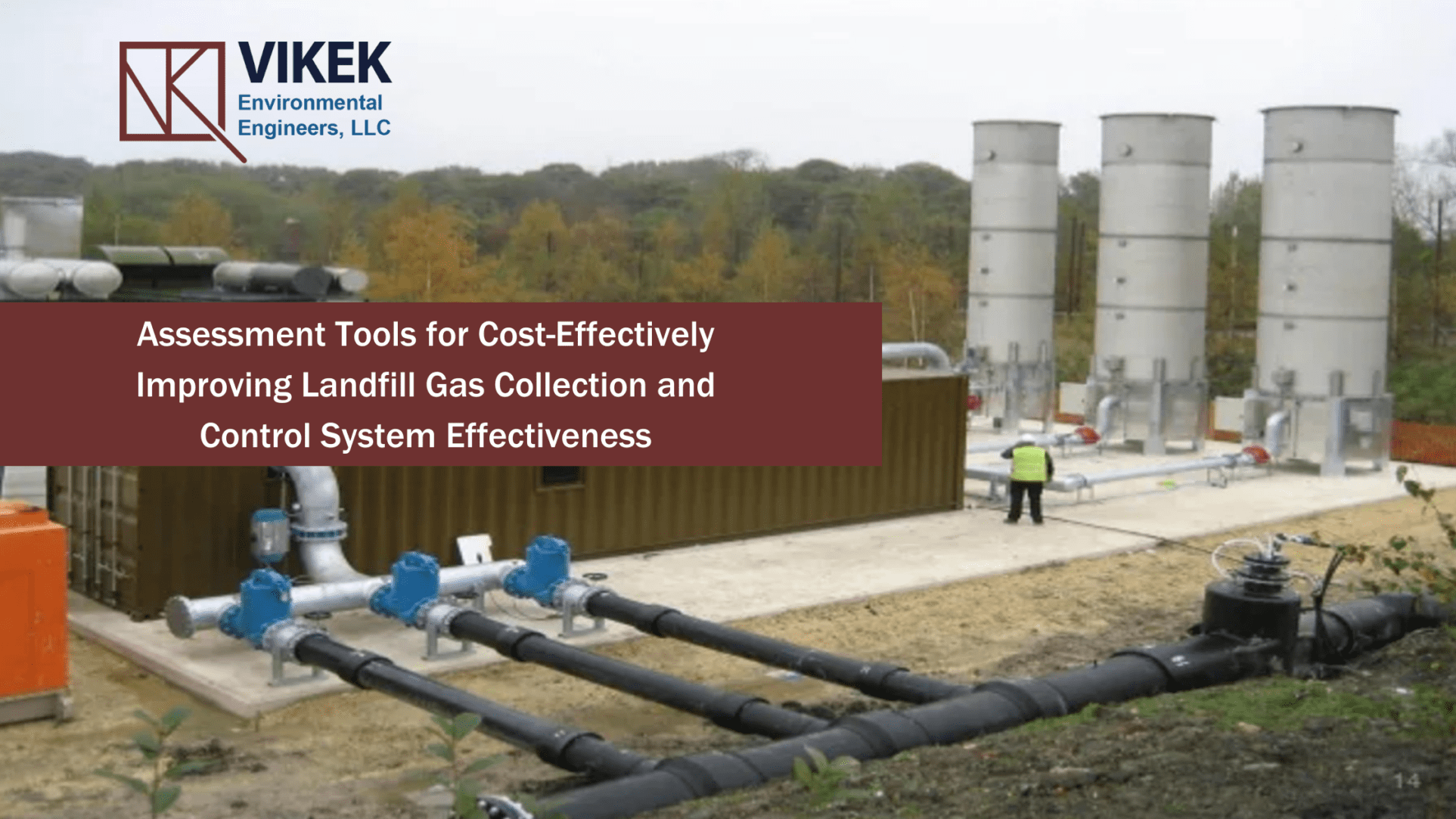Landfill Gas collection and control systems (GCCSs) are integral parts of all modern landfill environmental management facilities. In many large landfills, landfill gas (LFG) is processed for beneficial use to heat homes and produce electricity, and not merely flared. In such operations, the GCCS must be designed to achieve dual goals − preventing harmful non-methanogenic organic compounds (NMOCs) emissions and maximizing the production of high-quality gas that meets the specifications for associated landfill gas-to-energy (LFGTE) facility operations. These goals can conflict and cause operational challenges unless robust strategies for design, operations, maintenance, and control of the entire system are carefully developed, linked to daily solid waste management activities and performance monitoring and measurements.
A well-functioning GCCS requires a thorough understanding of local site conditions, as well as the relevant environmental and safety regulations for each specific operation. On this basis, one can then apply the appropriate GCCS best practices for the operation, maintenance, staff training, and risk management protocols that can lead to a reliable GCCS system able to achieve the desired system operational goals.
Vikek offers solutions for the combination of safe gas collection and the maximizing of high-quality gas production while maintaining safety regulations, requirements and guidelines.
The broader picture is that a well-tuned GCCS needs to work smoothly with its partner LFGTE facility. As the first step in such cooperation, each party needs to carefully understand in great detail the needs, capabilities, and limitations of the other. Based on decades of staff experience, Vikek understands the opportunities and challenges of fine-tuning an effective GCCS and enabling it to work optimally with a partner LFGTE. Therefore we can offer cost-effective solutions to help you maximize landfill gas collection, the optimization of high-quality gas production, and smooth integration with your LFGTE – while achieving appropriate safety, environmental, regulatory, and energy conversion goals.
Our first question when analyzing a client’s operations is [1] how effectively the GCCS is performing, and [2] how accurately is its performance being measured.? We quickly develop answers to these two questions and then propose steps that will cost-effectively enhance system effectiveness, using our knowledge of asset management, national and international GCCS standards, and our considerable experience improving environmental management system performance in a wide range of landfill settings.
Typically, the performance of a GCCS has been measured simply by its end products – the quantity and quality of LFG produced. However, our view is that to achieve truly sustainable effectiveness, each GCCS should be analyzed and managed as an integral part of a complete value chain, from waste collection and transportation to transfer and material recovery, landfilling, gas collection, treatment, and an optimal end use of the recovered energy. In our practice, we have often seen that strengthening one process within the overall system can produce costly issues in other parts. Our application of a full lifecycle approach for evaluating and improving system effectiveness will ensure that all interactions and interdependencies are appropriately addressed together.
The Methodology: Holistic GCCS Effectiveness Assessment Framework
One of the tools we have developed to leverage our skills in this area is the GCCS effectiveness assessment framework illustrated in Figure 1.

This approach starts with helping clients to sharply focus on their multi-year strategy, mid-term operational objectives, and the specific management plans which will lead to these results. The second step is to develop in detail how to adjust several key elements of a GCCS operation to simultaneously optimize your system’s four core operational activities of Extraction, Collection, Conveyance, and Treatment.
Determination of GCCS Effectiveness
The performance metrics we use are all driven by a client’s objectives, which can be quite different in public versus private sector settings. In the former, there are often numerous outside advisory committees to be satisfied, public health requirements, internal and external auditors involved, and of course approval by one or more city or county elected bodies. We are experienced in collaborating with these many stakeholders – how to guide them into developing solutions which they are all likely to approve, while yet having the outcome fully reflect best-practice capabilities.
Although private sector operations are usually more straightforward, in this arena we carefully work backward, starting from shareholder value creation, to determine optimal solutions for each aspect of a GCCS operation. Our approach is rapid and reveals performance gaps, the risks they present, related opportunities for improvement, plus actionable plans that provide steps towards the successful execution of best practice actions.
To achieve the results clients expect, we employ numerous but specific performance indicators to assess effectiveness in each system performance area. The quality of the overall GCCS operations is then determined from a consideration of the combined rating. This approach makes it easier to visualize and target improvement actions.
Table 1 illustrates a variety of issues we typically encounter on assignments, and some of the outcomes which we obtain, guided by our GCCS Effectiveness Framework.
Table 1: Key Issues and Outcomes Derived from Framework Application
| TYPICAL PAIN POINTS ADDRESSED BY OUR LANDFILL GAS COLLECTION AND CONTROL SYSTEM ASSESSMENT FRAMEWORK (LFGAF) | TYPICAL OUTCOMES WE PRODUCE |
| ● Lack of broad visibility regarding GCCS management strategies. ● Inconsistent and non-standardized value chain processes. ● Insufficient actionable performance measures, data, and reports. ● Overly complacent performance measurement and management system. ● Lack of system replacement and expansion strategy and plans. ● Inconsistent delivery of the desired quality and quantity of gas to associated LFGTE facilities. ● Low cost-effectiveness of overall operations, as seen by key stakeholders or shareholders. |
● A practical roadmap for achieving a sustainably effective GCCS. ● Identification of system interactions and cause-effect relationships. ● Factual demonstration of improved system performance based on our advice. ● GCCS Health Check. ● Independent review of planning, design, operations, and control systems. ● Identification and justification behind any remedial actions. ● Identification of material weaknesses in management processes. ● Improved understanding of process and performance gaps and optimization opportunities. ● Exposure to GCCS best practices and an understanding of the benefit-cost ranking from actions we recommend. ● Actionable next steps and enabling decision-making process ● Greater profit for private operations, or increased net social benefits for public ones, as perceived by the stakeholders who own the system. |
Case Study: Examples of Success
“ Vikek Engineers met the unique challenges posed by the GCCS at the Go East Landfill with their creative assessment, design features, and overseeing system construction. Their relevant experience would be key to the success of future similar projects and we highly recommend their team.”
– Marty Penhallegon, P.E., President, PACE Engineers Inc.
Vikek Engineers lead in holistic design and a comprehensible approach to GCCS.
Making the right decisions in this critical landfill management area can be expedited by using proven frameworks and having access to the leading engineering designs and operations improvement practices that have already helped provide the best solutions for landfill management challenges. You can trust the expertise of Vikek Environmental Engineers, LLC, and will find that by implementing our GCCS Effectiveness Assessment Framework, you will successfully produce the results you seek for your gas collection and control system, and how it integrates with MSW acceptance strategy, landfilling, gas conversion to your relevant gas-to-energy facility.
For more information call Vikek Environmental Engineering, LLC, for an initial consultation: (206) 629-5935.



